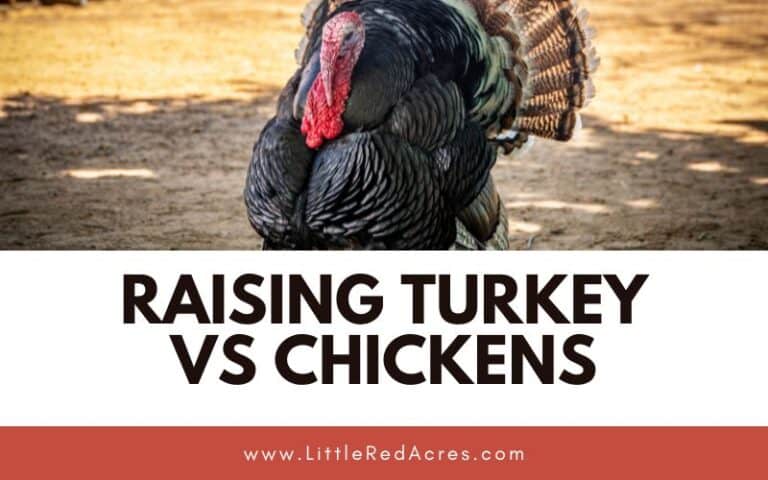Learn How to Care for Turkeys
Are you thinking about welcoming a turkey to your backyard flock? Turkeys require a little bit more effort than chickens, but they make a great, fulfilling addition to the family. Here are a few tips on how best to care for turkeys.

This post may contain affiliate links, see my disclosure policy for more information.
Learn How to Care for Turkeys
To ensure the health and well-being of your birds, it is important to gain an understanding of the various aspects of caring for turkeys.
Get updates & freebies delivered to your inbox!
Choose A Turkey Breed
You want to make sure to choose a turkey Breed that is suitable for your environment.
Depending on the climate, terrain, and other conditions, some breeds may thrive while others may struggle. It is important to research and consider these factors when selecting the ideal breed for your area.
Different breeds of turkeys have different characteristics, and not all breeds are suited for all environments.
Provide Fresh Water and Feed
This is the basics of raising any and all animals. Turkeys if they are hungry and unable to free range for their own feed, will eat each other.
You can buy turkey feed at the feed store. They need roughly 1/2 of it per day.
You can feed turkeys cracked or whole kernel corn, sunflower seeds, oats, wheat, or non-medicated commercial poultry or turkey rations.
Provide Adequate Shelter
Ensure the turkey is provided with adequate shelter. Everything is bigger with turkeys. If you are not free ranging, then you will need a large enough run to give them room to move around, to not get bored.
You need to provide them with roosting space and make sure it is predator safe.
You can learn more about turkey coop needs in the winter here.

Monitor Your Turkey for Signs of Illness
Like chickens, turkeys are going to hide any sign of illness. These are things that you should be watching for each and every day. Just like you should be doing with your chickens. In an ideal world, you don't have to worry about anything.
- diarrhea
- nasal discharge
- sneezing
- nervous signs or paralysis
- inactivity, head under wing, feathers ruffled or isolated from the group
- a pale or purple comb
- frequent shutting of eyes
- little response when touched or pushed, or often pecked at by others
I never lost a turkey to illness or a predator.







